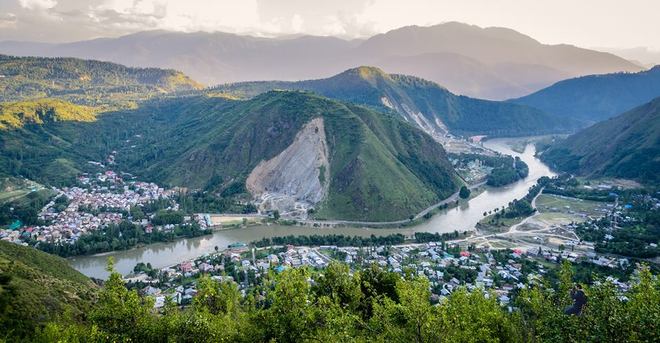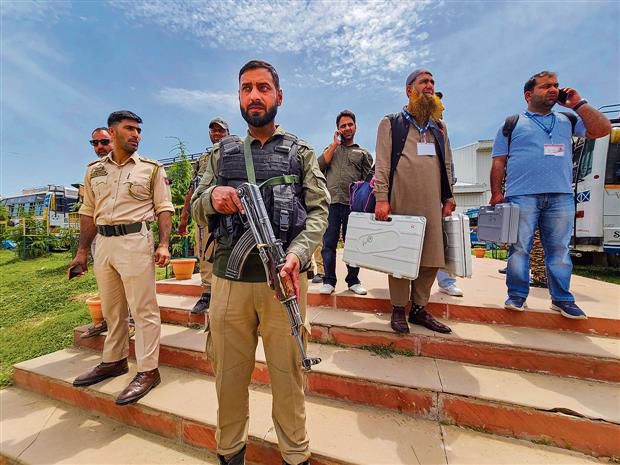Known as Gateway to Kashmir till 1947, it lost importance over the years
 Kashmiri historian and scholar Prithvi Nath Kaul Bamzai had, in his writings, described Baramulla as the chief city of Jammu and Kashmir.
Kashmiri historian and scholar Prithvi Nath Kaul Bamzai had, in his writings, described Baramulla as the chief city of Jammu and Kashmir.
Situated along the historic Rawalpindi-Srinagar highway, now called the Srinagar-Muzaffarabad road, traders and visitors, or for that matter even raiders, first landed in Baramulla before 1947, when the road was closed.
However, over the years, the once bustling business city and Gateway to Kashmir had faced political as well as economic neglect.
“Baramulla as a town or as an urban trading centre has had a glorious past. Being an important trade centre, it was the melting pot of Kashmiri, Punjabi and English cultures,” said writer and poet Khaliq Parvez.
In his book ‘Jila Watan’ (exile), he devoted a chapter to highlight the historical and cultural importance of Baramulla. Khaliq added that before Partition, Baramulla hosted one of the biggest Urdu ‘mushairas’ in the south Asian region, in which many prominent personalities of that time participated.
“But with the closure of the Srinagar-Muzaffarabad-Rawalpindi road, as it was called then, the town lost its importance. With time, the town faced economic and political neglect,” Khaliq said.
He added that before Partition, several big hotels, restaurants and tea shops dotted the lanes and bylanes of Baramulla, where visitors from all over the state and other regions of undivided India would arrive.
Highlighting how Baramulla lost its importance due to closure of the Srinagar-Muzaffarabad road, Bashir Ahmad Kanroo, trader and former head of the Baramulla Beopar Mandal, said the town suffered due to poor representation.
“Baramulla as the district headquarters was always represented poorly. The ruling dispensation, which was either from south or central Kashmir, never gave Baramulla the importance it deserved. Instead, over the years, Baramulla faced both political and economic neglect,” he said.
He added that over the years, many district offices which were supposed to be based in Baramulla, were shifted to other places.
He pointed out that over the years, Baramulla was reduced in size from being one of the largest districts of the country as two new districts, Kupwara and Bandipora, were carved out of it. “Thus, Baramulla, as district headquarters, was disempowered by successive governments,” he added.
However, Ajaz Ahmad Kakroo, former principal of Sainik School, Mansbal, and former private secretary to Ghulam Nabi Azad, said the present political and economic disempowerment of Baramulla had much to do with “political aloofness” of its people.
“Barmulla town is a known hub of the ‘pro-freedom sentiment’ and people never reconciled with political beliefs. That is one of the reasons that Baramulla has been neglected over the years by the political dispensation at the helm of affairs,” he said.
“Besides, the closure of the Jhelum valley road has also contributed to the neglect of Baramulla,” he said. He added that like downtown Srinagar, Baramulla had been punished for its political beliefs.




